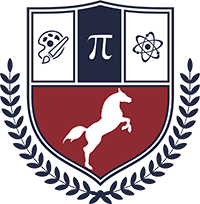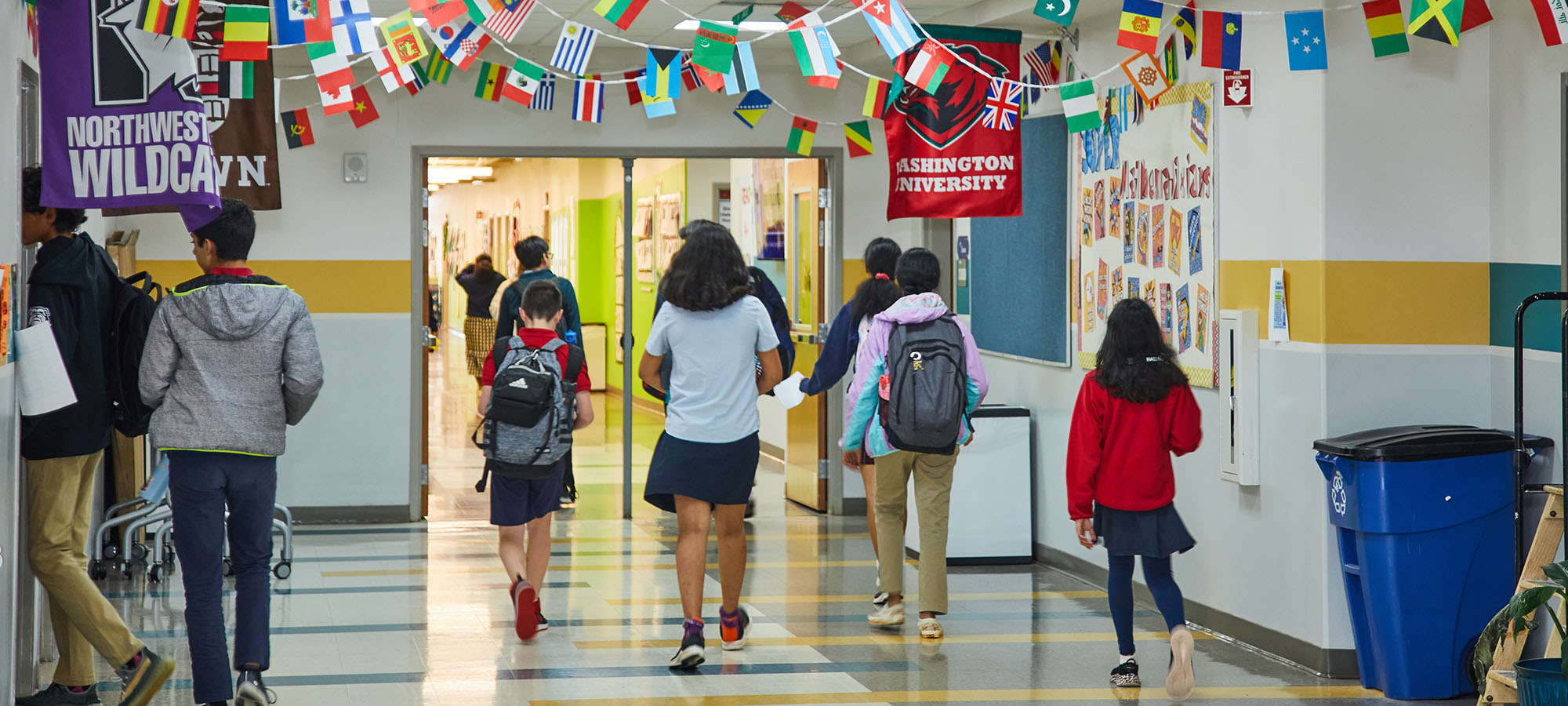Our dedicated and certified teachers with gifted endorsements provide a STEAM-focused education, incorporating music, art, computer, physical education, and robotics classes into the curriculum. Our small school environment ensures individual attention for each student, with low student-teacher ratios and grade-level acceleration opportunities.

As a faculty member at Fulton Science Academy, I am inspired by our mission, vision, and belief statements. These guiding principles have a profound impact on how we approach teaching and learning. Our commitment to cultivating a caring and inclusive environment enables our students to develop the skills, character, and passion necessary for lifelong success.
Julianne Oliver
Instructional Coordinator
Instructional Coordinator
LANGUAGE ARTS

The middle school language arts curriculum at Fulton Science Academy Private School is designed to foster literacy and lifelong independent thinkers. Our challenging, complex approach to teaching literature and language aims to prepare students to think critically in all areas of life, to promote reading as a source of acquiring knowledge, and to encourage reading for enjoyment.
Our curriculum is guided by the Common Core State Standards and includes the Houghton Mifflin’s Collections series, which directs students to study the interconnections of various kinds of literature within thematic units. Through a variety of approaches to discussion and analysis, students learn to express the purpose, meaning, and structure of written texts. Novels and plays such as Sounder, Animal Farm, Anthem, A Midsummer Night's Dream, Much Ado About Nothing, and Julius Caesar are read by all students. To reinforce reading skills and to foster independence, a book-a-month of the student’s choice is required.
Writing, research, vocabulary, and grammar skills are also emphasized in our curriculum. Students learn to compose a wide variety of pieces, including analytical, persuasive/argumentative, narrative, informative, and creative writing. They also develop research skills and learn to integrate source material into their writing, using proper citation and attribution. Teachers use resources such as Write Source, IXL, Word Within a Word, and Write Score to help students practice and improve their writing, grammar, and vocabulary skills while also providing differentiated assessments and progress monitoring.
Ultimately, our vertically aligned curriculum prepares students not only to succeed on the college level but also to set a foundation for a lifelong educational journey. By providing a challenging and stimulating environment, we foster a love of reading, writing, and learning that will stay with our students long after they leave our school.
Our curriculum is guided by the Common Core State Standards and includes the Houghton Mifflin’s Collections series, which directs students to study the interconnections of various kinds of literature within thematic units. Through a variety of approaches to discussion and analysis, students learn to express the purpose, meaning, and structure of written texts. Novels and plays such as Sounder, Animal Farm, Anthem, A Midsummer Night's Dream, Much Ado About Nothing, and Julius Caesar are read by all students. To reinforce reading skills and to foster independence, a book-a-month of the student’s choice is required.
Writing, research, vocabulary, and grammar skills are also emphasized in our curriculum. Students learn to compose a wide variety of pieces, including analytical, persuasive/argumentative, narrative, informative, and creative writing. They also develop research skills and learn to integrate source material into their writing, using proper citation and attribution. Teachers use resources such as Write Source, IXL, Word Within a Word, and Write Score to help students practice and improve their writing, grammar, and vocabulary skills while also providing differentiated assessments and progress monitoring.
Ultimately, our vertically aligned curriculum prepares students not only to succeed on the college level but also to set a foundation for a lifelong educational journey. By providing a challenging and stimulating environment, we foster a love of reading, writing, and learning that will stay with our students long after they leave our school.
SCIENCE
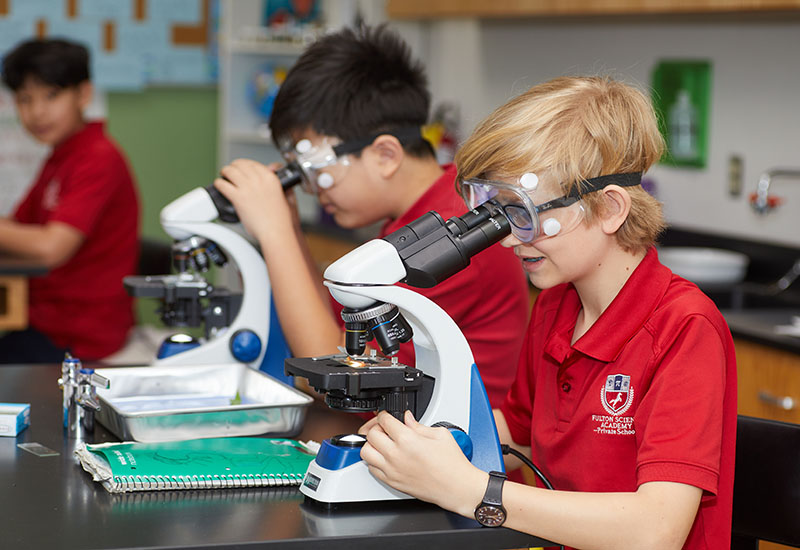
FSA's K-8th grade science curriculum is anchored by the Delta FOSS (Full Option Science System), curriculum, which adheres to the Next Generation Science Standards (NGSS) in alignment with Georgia's Standards of Excellence. The FOSS curriculum fosters STEAM instruction in our daily lessons and activities, placing a strong emphasis on immersive and interactive learning in the science classroom. Our ultimate goal is to nurture our students' scientific thinking and collaboration skills.
The NGSS Standards prioritize the three dimensions of science learning: crosscutting concepts, science and engineering practices, and disciplinary core ideas. Each standard is informed by all three dimensions, helping students build a comprehensive understanding of science over time. With the FOSS curriculum, teachers and students have access to comprehensive materials, resources, and focus questions to gain a deeper understanding of these scientific concepts. Classroom experiences are thoughtfully designed to engage all students through active and meaningful learning opportunities while integrating robust reading and literacy strategies to support the Common Core ELA standards.
In middle school, students hone their abilities to express their ideas, defend their thoughts, and actively contribute to classroom discussions. Through small group work, large group discussions, and the continuous synthesis of new ideas, students develop the essential problem-solving and critical thinking skills required to progress through future science courses.
The NGSS Standards prioritize the three dimensions of science learning: crosscutting concepts, science and engineering practices, and disciplinary core ideas. Each standard is informed by all three dimensions, helping students build a comprehensive understanding of science over time. With the FOSS curriculum, teachers and students have access to comprehensive materials, resources, and focus questions to gain a deeper understanding of these scientific concepts. Classroom experiences are thoughtfully designed to engage all students through active and meaningful learning opportunities while integrating robust reading and literacy strategies to support the Common Core ELA standards.
In middle school, students hone their abilities to express their ideas, defend their thoughts, and actively contribute to classroom discussions. Through small group work, large group discussions, and the continuous synthesis of new ideas, students develop the essential problem-solving and critical thinking skills required to progress through future science courses.
MATHEMATICS

For math instruction, FSA utilizes The Common Core National Standards for Mathematics as well as a rigorous curriculum, Math In Focus, to meet students at their appropriate math levels. The Math In Focus curriculum is designed to ensure every child is able to master concepts and apply mathematics. Problem solving is at the heart of this American version of the Singapore Math approach and requires students to gain an understanding of the math concepts and apply these concepts successfully.
This curriculum works to leverage global next practices and research to create a unique approach based on visual models, hands-on activities, and a consistent pedagogical approach for grades 6-8, allowing us to best prepare our middle-grade students by empowering them to develop the critical-thinking skills, positive attitudes, and confidence needed to set the stage for achievement for the more challenging math courses they will take in their higher grades.
At FSAPS, we offer a unique course structure of both typical courses, as well as hybrid courses in order to meet the needs of all our students. This allows students who have a strong grasp of mathematical foundations to accelerate through math instruction.
This curriculum works to leverage global next practices and research to create a unique approach based on visual models, hands-on activities, and a consistent pedagogical approach for grades 6-8, allowing us to best prepare our middle-grade students by empowering them to develop the critical-thinking skills, positive attitudes, and confidence needed to set the stage for achievement for the more challenging math courses they will take in their higher grades.
At FSAPS, we offer a unique course structure of both typical courses, as well as hybrid courses in order to meet the needs of all our students. This allows students who have a strong grasp of mathematical foundations to accelerate through math instruction.
SOCIAL STUDIES
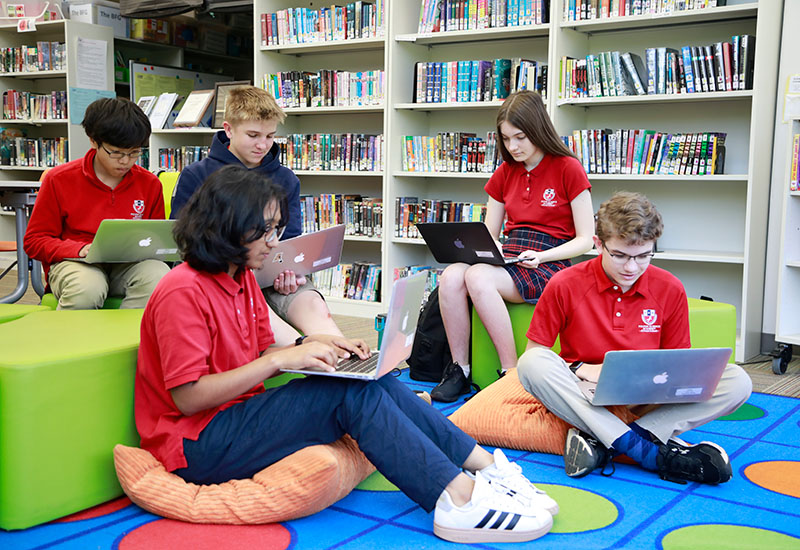
Our middle school goals for social studies instruction are to teach our students to think critically, be good communicators and develop the skills necessary to participate meaningfully in the global community of the 21st century. The middle school curriculum in 6th and 7th-grade focuses on global studies through an integration of geography, history, economics, civics and current topics of interest. In 6th grade, students investigate Europe, Latin America, Canada and Australia. In 7th grade students continue their global studies, focusing on Asia and Africa.
Our 8th-grade curriculum provides the same type of broadly integrated social studies curriculum devoted to American Studies. This course provides students with an integrated thematic exposure to U.S. history, geography, economics, civics and current topics of interest. Our middle school curriculum follows the Georgia Standards for Excellence for Social Studies and the recommendations of the National Council for the Social Studies. Throughout middle school students develop information processing and literacy skills. Our social studies curriculum is enhanced through the use of the DBQ Project that promotes the development of high-level critical thinking and writing skills through the use of content-specific questions and evidence based analysis.
Our 8th-grade curriculum provides the same type of broadly integrated social studies curriculum devoted to American Studies. This course provides students with an integrated thematic exposure to U.S. history, geography, economics, civics and current topics of interest. Our middle school curriculum follows the Georgia Standards for Excellence for Social Studies and the recommendations of the National Council for the Social Studies. Throughout middle school students develop information processing and literacy skills. Our social studies curriculum is enhanced through the use of the DBQ Project that promotes the development of high-level critical thinking and writing skills through the use of content-specific questions and evidence based analysis.
WORLD LANGUAGES

Our world language department’s goal is to shape our students into globalized citizens and bilingual professionals able to confidently connect and make a difference with others around the world. Being able to communicate in other languages is an extremely essential skill and sets students apart when applying for various career fields such as medical/health, business, law, politics, and journalism. Our students will be able to stand out in the job market in this globalized world.
FSA offers Spanish and Turkish classes at FSA throughout all of secondary school which are designed so that students acquire skills in the areas of speaking, reading, writing, and listening in the target language. Students work to meet the ACTFL (American Council on the Teaching of Foreign Languages) standards working from novice to advanced on the ACTFL scale by the time they finish at least 4 to 5 world language credits. Students are also offered opportunities to go on trips abroad during the school year or in the summer to practice the language and be enveloped into different cultures.
FSA offers Spanish and Turkish classes at FSA throughout all of secondary school which are designed so that students acquire skills in the areas of speaking, reading, writing, and listening in the target language. Students work to meet the ACTFL (American Council on the Teaching of Foreign Languages) standards working from novice to advanced on the ACTFL scale by the time they finish at least 4 to 5 world language credits. Students are also offered opportunities to go on trips abroad during the school year or in the summer to practice the language and be enveloped into different cultures.
SPECIALS
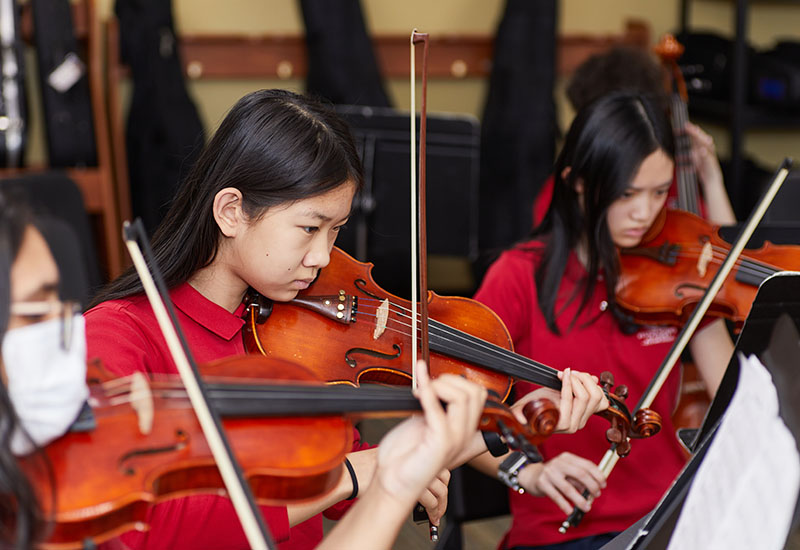
At FSA, 6th grade students gain broad exposure to many specials courses, and 7th and 8th grade students choose a track (art, orchestra, or band) in order to dive deeper into their area of interest. There is ample research supporting student choice, which tends to increase students’ engagement and ownership over their learning. Our specials structure allows students to explore different options, followed by specializing in and working towards mastery in their area of choice. In all three grade levels, students have one period of specials every day.
In 6th grade, students have one day of music, one day of art, one day of P.E., and two days of creative problem-solving (more information on this course is below).
In 7th and 8th grades, students have one day of P.E., two days of their selected specialty (art, orchestra, or band), and two days of creative problem-solving.
Creative Problem-Solving provides students with sufficient time to make connections across content areas and learn deeply in an authentic way. Computer science, coding, and robotics education are embedded into this course. Creative Problem-Solving is a course focused on real-life problems that students work towards remedying. To solve these problems, students must work collaboratively, integrating all disciplines into their work. Creative Problem-Solving and students’ core courses support one another, allowing students to apply their knowledge and understand how seemingly separate subjects and topics are related. This course provides students with a critical framework for an increasingly interdisciplinary world.
In 6th grade, students have one day of music, one day of art, one day of P.E., and two days of creative problem-solving (more information on this course is below).
In 7th and 8th grades, students have one day of P.E., two days of their selected specialty (art, orchestra, or band), and two days of creative problem-solving.
Creative Problem-Solving provides students with sufficient time to make connections across content areas and learn deeply in an authentic way. Computer science, coding, and robotics education are embedded into this course. Creative Problem-Solving is a course focused on real-life problems that students work towards remedying. To solve these problems, students must work collaboratively, integrating all disciplines into their work. Creative Problem-Solving and students’ core courses support one another, allowing students to apply their knowledge and understand how seemingly separate subjects and topics are related. This course provides students with a critical framework for an increasingly interdisciplinary world.
